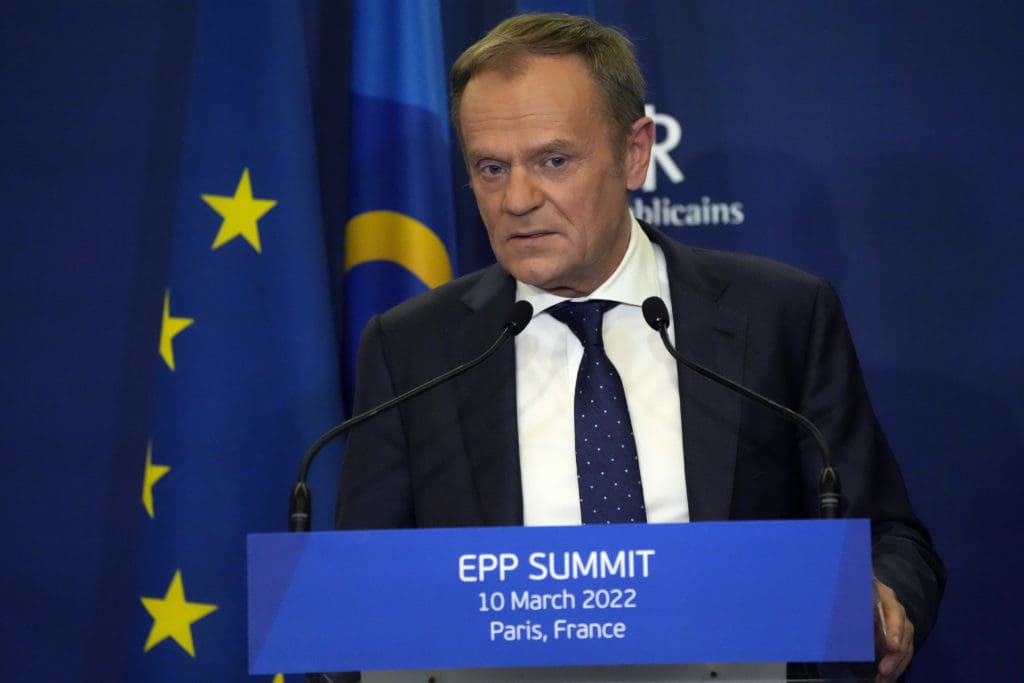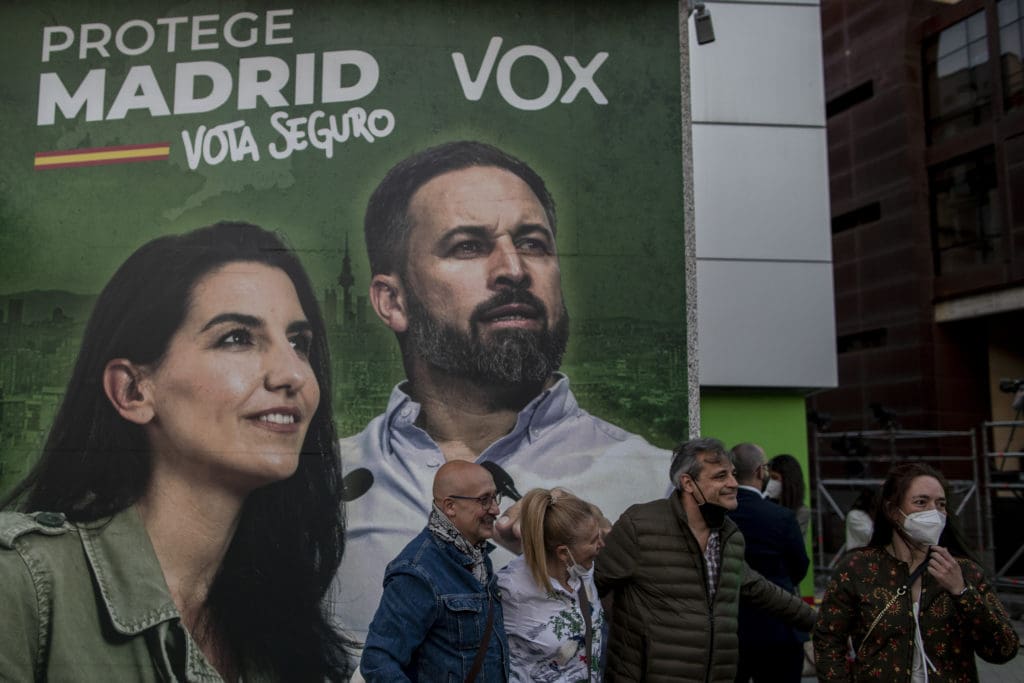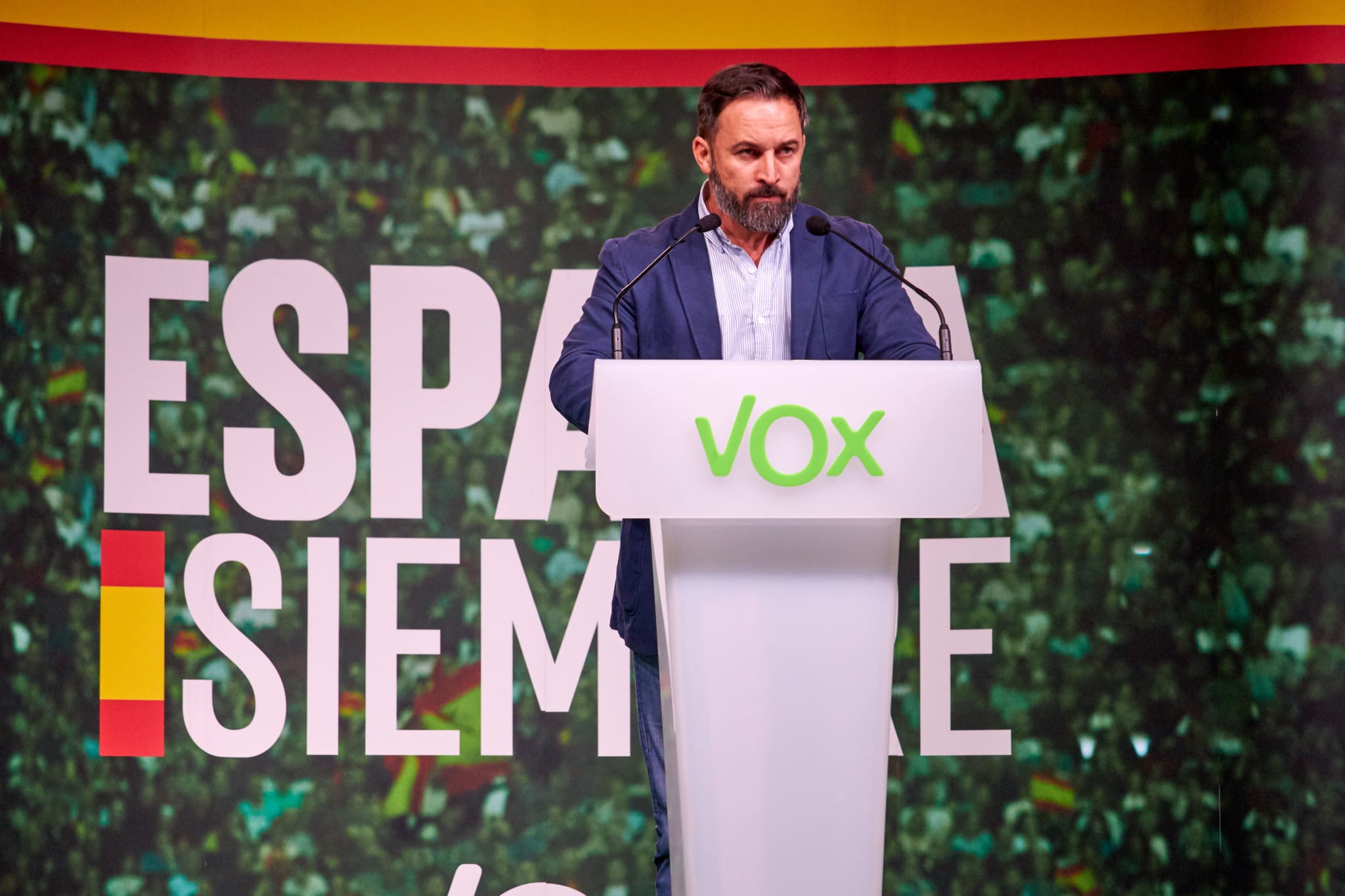If Donald Tusk isn’t happy, it is safe to say that much of the Brussels establishment isn’t happy, and Spain’s new regional conservative government coalition has already drawn his ire.
“It was a sad surprise. Pablo Casado was a personal guarantee to keep the PP in the center-right, avoiding this kind of flirtation with the radicals, with far-right movements like Vox,” Tusk said at a meeting with European People Party leaders last Thursday, which was the same day the PP-Vox coalition government was announced. The Spanish People’s Party (Partido Popular, PP) is a long-time member of Tusk’s European People’s Party.

Truth be told, even those who were keen to see an alliance between the center-right PP and the more conservative Vox did not really expect such a coalition to be formed in Castile y León. Among the doubters was right-wing journalist Alvaro Peñas. He told Remix News a fortnight ago that “there may be many PP voters who want an ideological shift, that the PP makes agreements with Vox, but this is not the case in the leadership.”
But as a matter of fact, a deal has been struck by the PP president of the autonomous community (region) of Castile and León, Alfonso Fernández Mañueco, with Santiago Abascal’s people in the region, giving them about the same weight in the regional government as had the liberal Ciudadanos party before the Feb 13 early elections. Mañueco had called an early election as he expected Ciudadanos to betray the PP to the Socialists like they had done in some other regions, and he hoped he could obtain enough votes to govern without coalition partners, which did not happen but led to Vox having 13 seats instead of one in the regional parliament, where the PP now has 31 seats instead of 29.
[pp id=30099]
With the new regional government, Vox will hold the presidency of the bicameral legislative chamber, three ministries, and the vice-presidency of the regional government. It will be the first time Vox will take part in a government, representing a major breakthrough.
Abascal’s party was created in 2013 by people from the PP who disagreed with their party’s shift to the left under Mariano Rajoy’s leadership. It has since then established itself on the Spanish political scene as an uncompromisingly conservative party, opposed to a federal EU, to mass immigration and to the LGBT agenda, defending Spain’s unity, and standing firm on the right to life of the unborn, which not many right-wing conservative parties in Europe do anymore.
[pp id=29585]
Vox’s progression has been quite extraordinary. In 2015, it obtained only 0.23 percent in the national legislative elections. In April 2019, it secured over 10 percent of the national vote and made its entry to the Congress of Deputies, Spain’s lower chamber. It then obtained a similar result later that year in the regional elections. In the December 2019 early national elections, Vox’s result rose to 15 percent of the vote, giving it 52 seats in the Congress of Deputies and making it Spain’s third party after the Socialist Party (PSOE) and the People’s Party (PP).
Under the leadership of Pablo Casado, who is now heading for the exit and should soon be replaced by the president of Galicia, Alberto Núñez Feijóo, the PP adopted a “cordon sanitaire” policy against Vox, and that policy seemed to be very much supported by Núñez Feijóo. Shortly after a coalition agreement had been confirmed in Castile and León, Núñez Feijóo explained that it is the Socialists who, by refusing to abstain to allow the election of a minority government with the PP only, left it with no choice but to negotiate with Vox.
He also insisted that after the next national election, the PP will first propose to the PSOE that the most voted of the two parties should be allowed by the other one to govern even though it may not have an absolute majority. The next national elections are due in November 2023 unless early elections have to be called due to the current PSOE-Unidas Podemos coalition falling apart.

Spain’s left-wing prime minister, Pedro Sánchez, has reproached the PP for its new regional coalition government with Vox, but PP has answered that “the PSOE is not in a position to give lessons as it governs with Podemos and pacts with Bildu”.
Both Unidas Podemos and Bildu are far-left parties, the former being an alliance of the populist left with the Communists and the latter being accused of having links to the leftist terrorist Basque organization ETA. However, as the PSOE-Unidas Podemos coalition is now further weakened by Sánchez’ alignment with NATO and the EU over the issue of Russia’s war in Ukraine, the PSOE too seems more than ever keen to agree on a future government with the PP in spite of the latter’s alliance with Vox in Castile and León.
As Alvaro Peñas told Remix News, in Castile and León, the PP “had no other way out” as opinion polls showed that repeating the election would lead the PP to lose seats to Vox. “But it must also be clear that the first party they tried to negotiate with was the Socialist Party. It was the PSOE who forced them to strike an agreement with Vox.”
Like many commentators, Peñas was nonetheless surprised that such a coalition could come to life at the regional level, after years of the PP refusing any such possibility.
[pp id=18430]
As he told Remix News: “I was surprised. We all were. Mañueco’s option, as he had stated, was to try to get the PSOE to support him by abstaining during his election as president. As he did not get that support, they made a radical turn and resorted to this agreement with Vox.”
However, Alfonso Fernández Mañueco himself now insists he is proud of his coalition program with Vox and that he himself has never been in favor of labeling Vox or its members as radicals or populists.
“What I can talk about is this coalition agreement, which is neither racist, nor sexist, nor homophobic, nor radical, nor is there in it any of what is said. I invite you to read it. I ask that the government be judged by what we say and do. We have been able to find a point of balance that allows both our parties to feel comfortable.” he said in an interview with El Mundo published on March 12. “We have many clear differences with Vox, but now we prioritize what unites us, for Castile and León.”
One thing is sure: for months, all opinion polls have shown that the only alternative to Sánchez’s coalition with the far left at the national level would be a coalition between the PP and Vox. The average of all polls as of March 15 shows that were an election to take place now, the PP would get 22.3 percent of the popular vote and Vox 20.7 percent, while the PSOE would win 26.8% and Unidas Podemos 11%.
So, whatever the leaders say right now in Madrid, Castile and León could pave the way for a conservative government in Spain.





